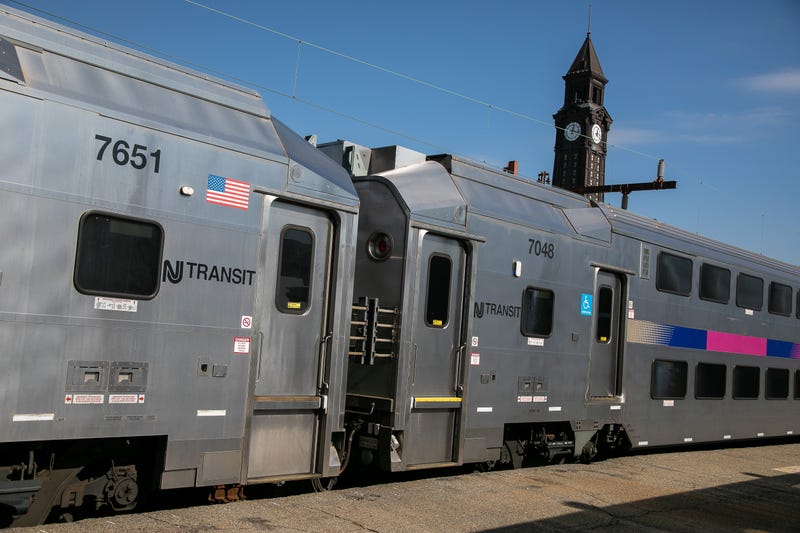
NEW YORK (BLOOMBERG) -- New Jersey Transit is asking riders to work from home in the event of a potential union strike that threatens to shut down commuter rail service starting as early as May 16.
The agency requested riders travel on the system for “essential purposes only,” according to an alert posted on its website. NJ Transit unveiled a contingency plan should a strike impact the trains that shuttle roughly 100,000 people every day.
Kris Kolluri, the chief executive officer, said that current bus lines will be enhanced, prioritizing routes that go to New York City given the concentration of riders commuting into Manhattan.
“We will focus on moving essential workers who need to get to their work,” he said at a press conference on Wednesday. “For those folks who can afford to work from home, should the strike become a reality, we ask them to work from home.”
Union members represented by the Brotherhood of Locomotive Engineers and Trainmen voted earlier this month to reject a labor agreement. That sets the stage for engineers to go on strike from their daily job operations as soon as next month.
Engineers are responsible for operating the trains and driving them between each station. A coordinated effort by the rail worker’s union to call in sick in 2022 forced the system to halt all train service for the day.
NJ Transit’s Kolluri said that the locomotive engineers currently make an average of $135,000 each year and their request would raise compensation to $190,000 annually.
Accepting the union demands would cost taxpayers and the system roughly $1.4 billion between July and June 2030, according to estimates from NJ Transit. The agency would either have to increase fares by 17% starting this summer, hike the corporate transit fee by 27%, or make service reductions, officials have said.
A representative for the union did not immediately respond to a request for comment.
Broader Impact
NJ Transit is one of the nation’s largest public-transportation systems. It operates more than 925,000 weekday trips across its rail, bus and lightrail platforms. A potential strike would also impact some New York commuters.
The Metro-North Railroad contracts with NJ Transit locomotive engineers to run trains on the Port Jervis and Pascack Valley lines in Rockland and Orange counties. Those commuter lines run 64 trains a day, carrying about 2,000 customers, Justin Vonashek, head of Metro-North Railroad, said Wednesday during a board meeting of the Metropolitan Transportation Authority, which runs New York City’s transit network.
Metro-North is prepared to honor tickets from its Port Jervis and Pascack Valley lines on other Metro-North routes and also honor parking at five stations, if a strike occurs, Vonashek said. It will also add extra cars on its Hudson line to accommodate any surge in demand on that route.
“There’s no question that a strike west of Hudson will be extremely disruptive to our customers, but we are doing everything that we can to minimize that impact,” Vonashek said.
--With assistance from Michelle Kaske.
More stories like this are available on bloomberg.com.
